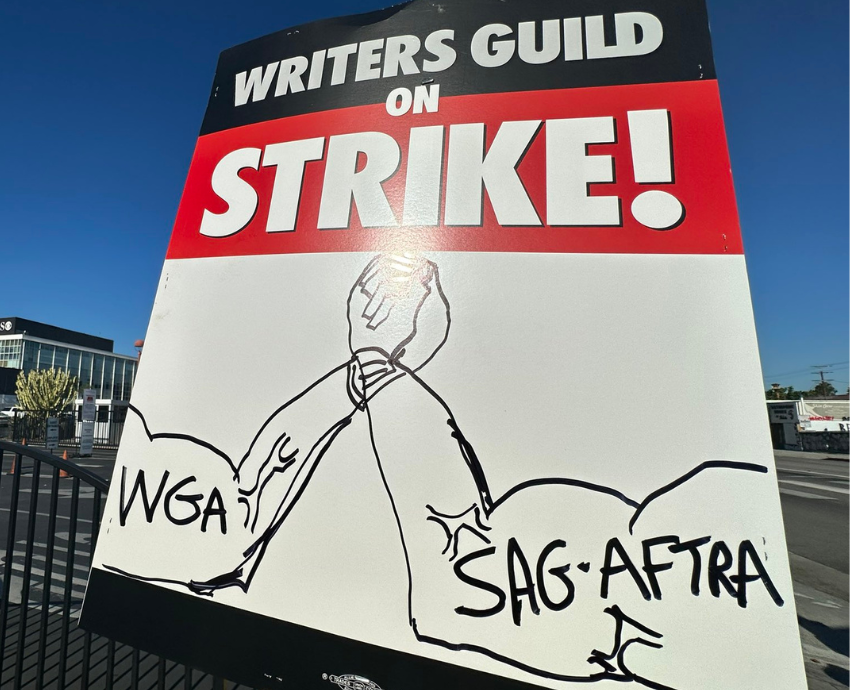
Members of the Screen Actors Guild-American Federation of Television and Radio Artists (SAG-AFTRA) — representing 160,000 actors across the United States — went on strike on July 14.
Pickets were established outside major Hollywood studios in eight locations, including Los Angeles and New York City. Many prominent actors, including Susan Sarandon, joined picket lines in support. Others plan to join the strike, shutting down most current and new film and television productions.
Most working actors live from paycheque to paycheque, with few benefits. Eligibility for health insurance requires earning a minimum of US$26,470 within a defined period and does not include wages from part-time jobs. One actor interviewed on the picket line said he lost health insurance by falling short by $50.
The actors say they are fed up with the exorbitant salaries of entertainment industry bosses and want a fairer share of the wealth being generated by the streaming service-dominated industry.
Actors joined 11,500 striking screenwriters who walked off the job in May over similar concerns, including the threat of artificial intelligence. Actors and writers have not been on strike at the same time since 1960.
After negotiations between the union and studio bosses broke down, union members voted to strike by an overwhelming 97.91%.
SAG and AFTRA merged in 2012, to strengthen their leverage against the studios. The last SAG strike occurred in 1980 for three months.
Tough times
Announcing the strike, SAG-AFTRA president, Fran Drescher — who created and starred in the 1990’s sitcom, The Nanny — said actors had no choice but to strike, after more than four weeks of negotiations.
The AMPTP — “which represents major studios and streamers, including Amazon, Apple, Disney, NBC Universal, Netflix, Paramount, Sony and Warner Bros Discovery — remains unwilling to offer a fair deal” to protect “working actors, and performers on whom this industry relies” and “[whose] compensation has been severely eroded by the rise of the streaming ecosystem," she said.
“Furthermore, artificial intelligence [AI] poses an existential threat to creative professions, and all actors and performers deserve contract language that protects them from having their identity and talent exploited without consent and pay.
“[T]he AMPTP has refused to acknowledge that enormous shifts in the industry and economy have had a detrimental impact on those who perform labour for the studios.”
Two days before the strike began. Disney’s chief executive, Robert Iger, received a two-year contract extension at $27 million a year. He then went on business media, blasting the actors union for striking for higher pay.
Creative labour
Studio bosses don’t create popular movies and television shows — workers do. Without them, there is no Hollywood.
The attitude of the big studios is the same as in other major industries. The only way to please shareholders is to raise stock values by laying off employees, taking away their benefits and not paying actors and writers their worth.
Mega stars like Tom Cruise, George Clooney, Harrison Ford and Nicole Kidman have the power to get high-paying contracts. Lesser-known actors and other cast and crew members depend on their unions to get a fair deal from studio bosses in contract negotiations.
SAG-AFTRA says it is trying to ensure living wages for “workaday” actors and to protect members from having their likenesses used in productions they took no part in.
The impacts of AI on working actors came up in negotiations for the last contract three years ago. The voices and facial outlines of actors can already be used over and over again without proper remuneration.
The studios argue they are trying to reach a “reasonable” deal in the context of the growth of streaming services, shrinking viewership and lower box office returns.
The two strikes potentially mobilise 170,000 workers against the studio bosses.
Many public and private sector unions have expressed support for the striking actors and writers, recognising that job security, wages and health benefits are common to all workers.
“What’s happening to us is happening across all fields of labour,” said Drescher. “When employers make Wall Street and greed their priority and they forget about the essential contributors who make the machine run, we have a problem.”
She said the union is willing to negotiate only if the studios are “willing to talk in a normal way that honours what we do”.
As The Guardian noted on July 16: “The recognisability of many of the faces now taking a stand, from [George] Clooney to Margot Robbie and Brian Cox, compared to their counterparts inside the writers’ rooms, has brought the Hollywood dispute to the top of the international news agenda.
“Productions involving leading American talent, stalled in many countries ever since work on scripts has been prohibited, will now probably grind to a near standstill. And the actors say they are prepared for a long fight.”